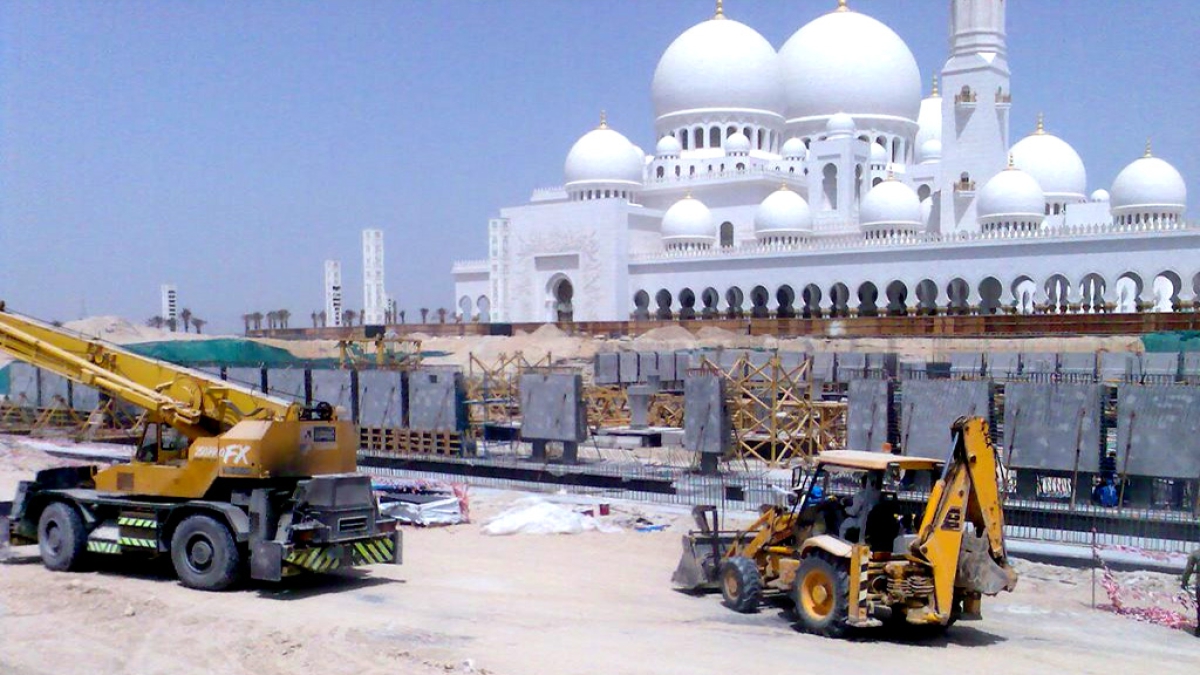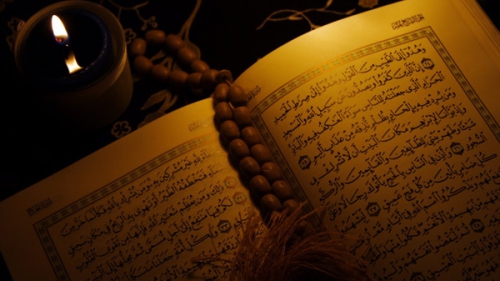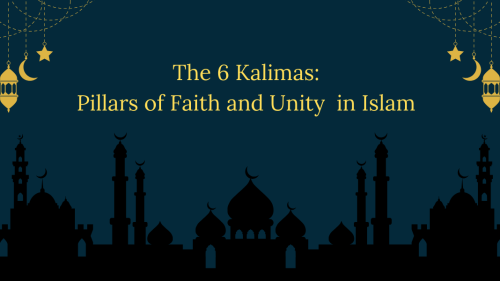Building and Decorating Mosques

Prophet Muhammad (pbuh) is reported to have said: "He who builds a mosque for Allah, Allah will build for him likewise in Paradise."(Sahih Muslim) Based on this and many other traditions, plus the Prophet's personal practices, building mosques and thus seeking the pleasure of Allah so that people's collective worship is facilitated, is one of the most desirable and so rewarding activities. Mosques vary in size and function: from simple places meant for a small group of people to perform collectively their daily prayers, to large and impressive masterpieces that function as both the catalysts and centers for the development of community.
Building mosques out of societal needs falls within the category of wajib or obligation. It is an Islamic dictum that if an obligation (wajib) cannot be fulfilled without something, the latter then becomes an obligation (wajib) as well. Undeniably, an obligation is providing Muslim communities with places for collective worship and for other beneficial communal activities. Without them, Muslim communities wouldn't be able to assert themselves and perform their expected roles both locally and internationally; their members wouldn't be complete Muslims.
Building mosques is also considered an act of lasting charity (sadaqah jariyah), that is to say, he who builds or takes part in building a mosque, will have his good deeds being recorded even after his demise, as long as the effects of his actions in the form of the built mosque and its honorable functions are extant on earth. Indeed, the Prophet (pbuh) spoke a great deal about the concept of the lasting charity (sadaqah jariyah). In a tradition of his, he referred, among other things, to building mosques and houses for travelers as forms of the enduring charity. (Sunan Ibn Majah)
Since the dawn of Islamic civilization, Muslims never hesitated to build mosques whenever even slight needs arose. As a result, mosques with their imposing minarets, domes and iwans or portals emerged as the most dominant elements in the skyline of Muslim urban and rural settlements. The language of Mosque architecture, likewise, emerged as the most prevailing and influential in the total organization of Islamic architecture. In fact, the language of mosque architecture came first into being as most complete, which then was modified and as much as possible integrated into the rest of the corpus of the Islamic built environment.
Certainly, due to this significance of the mosque institution, the first thing that the Prophet (pbuh) did upon migrating from Makkah to Madinah was building a mosque, the Prophet's mosque. Such was the first initiative in the Prophet's Madinah urbanization scheme. Everything else, such as building houses and providing a market for Muslim business activities, had to be put on hold till the completion of the Prophet's mosque which functioned as a community development center, came to pass. No wonder then that while building his mosque in Madinah with his companions, the Prophet (pbuh) lavishly praised the involvement of every individual, promising them a handsome reward in return.
The Prophet (pbuh) furthermore directed his companions to create mosques in their quarters and to cleanse and odorize them on special religious occasions. He even consented to the idea of his companions earmarking some spaces meant for worship in their houses. Such spaces served at the micro level as private mosques, places of prayer and other forms of worship. The Prophet (pbuh) is said to have graced some of such places by personally praying in them. Of the first instructions that the Prophet (pbuh) used to give to the visiting tribes that professed Islam was to build, utilize and sustain mosques in their respective communities. (Sunan Ibn Majah)
To what extent the mosque institution was needed and desired by the nascent Muslim community firstly in Makkah and then in Madinah, both to propel the struggle for the Islamic cause to a higher level and to spur and facilitate the overall progress of the Muslims, testifies the following event. On the way from Makkah to Madinah while undertaking the hijrah or migration, the Prophet (pbuh) rested four, or fourteen, or eighteen, or twenty two days in Quba' -- a suburb of Madinah about two to three miles to the south of the city - whence he next proceeded to his final destination, the city of Madinah proper. Even though his stay in Quba' accounted for a short interval but under some totally new circumstances which everyone was craving for, the Prophet (pbuh) succeeded in establishing a mosque there, "the Mosque of Piety", which he later during his subsequent stay in Madinah frequently visited, riding or walking. The Prophet (pbuh) is said to have first positioned a stone on the mosque's qiblah side (the qiblah then was towards the al-Masjid al-Aqsa) followed by Abu Bakr, who positioned another stone. Next, the people started building.
The mosque institution is the nucleus of believers' existence. It is a reflection of their attachment and commitment to the ideals that the mosque exemplifies, which at the same time are the ideals of Islam. Throughout the history of mankind, the mosque constituted an epitome of the never-ending struggle for supremacy between the forces of good and evil. The notion of administering and preserving the position and mission of the mosque institution, and who is best qualified for the task, is comprehensively encapsulated in the following Qur'anic verses: "It is not for such as join gods with Allah, to maintain the mosques of Allah while they witness against their own souls to infidelity. The works of such bear no fruit: in Fire shall they dwell. The mosques of Allah shall be visited and maintained by such as believe in Allah and the Last Day, establish regular prayers, and pay Zakat, and fear none (at all) except Allah. It is they who are expected to be on true guidance." (al-Tawbah 17-18)
Prophet Muhammad (pbuh) has said that Allah is beautiful and that He loves beauty. (Sahih Muslim) It is for this that the whole of Allah's creation has been designed and created according to the highest heavenly standard of splendor, beauty and order. Man, the vicegerent on earth, is beautiful too. He has been created "in the best of moulds." (al-Tin 4) Creating and appreciating beautiful objects and experiences is a passion instinctive to man. Given that Islam is a natural and rational religion, it opposes neither artistic creativity nor the enjoyment of beauty. On the contrary -- on the word of Isma'il al-Faruqi -- it blesses the beautiful and promotes it. It sees absolute beauty only in Allah and in His revealed will or words.
However, Prophet Muhammad (pbuh) not only totally overlooked the topic of decoration in buildings while building and while overseeing others who were doing the same, but also, at a first glance, he denounced especially the subject of mosque decoration in several of his hadiths (traditions). Obviously, due to the mosque's position in both society and every true believer's life, the Prophet (pbuh) was concerned about the theme of mosque decoration more than about the other aspects of Islamic built environment. In one of such traditions, he is reported to have said that whenever a people's performance ('amal) weakens, they then start decorating their mosques. (Sunan Ibn Majah)
In another tradition, the Prophet (pbuh) said that one of the signs of the Day of Judgment's imminence would be when people start vying in boasting with one another concerning mosques, including planning, construction, decoration and everything else that pertains to it. (Sunan Abi Dawud)
The Prophet (pbuh) also disclosed that he was not directed (ma umirtu) to erect (tashyid) monumental mosques. The narrator of this hadith, 'Abdullah b. 'Abbas, commented: "You shall certainly end up adorning your mosques as both the Jews and Christians did." (Sunan Abi Dawud) Surely, 'Abdullah b. 'Abbas did not say this of his own wish; rather, he just paraphrased a hadith in which the Prophet (pbuh) is reported to have uttered the same.
Nonetheless, in the mentioned traditions of his the Prophet (pbuh) did not mean to prohibit mosque decoration altogether. The whole thing must be studied carefully taking into consideration a number of religious and socio-economic factors. There is no tradition of the Prophet (pbuh), or a verse in the Qur'an, that clearly and utterly prohibits mosque decoration. And it is the nature of Islam that when it prohibits something, it does so in such a way that no ambiguity, or a room for any doubt, is left open.
Certainly, the Prophet's traditions (hadiths) in question have been uttered in the context of the status of the mosque institution in society and what kind of relationship between it and men ought to exist. The mosque is the focus and nerve-center of the believers' existence. It always epitomized the infinite struggle between good and evil. It is paramount that the mosque plays the role of a center of gravity in the development of communities. Such must remain unchanged, in spite of the developments that societies constantly undergo. Indeed, other valid societal roles and functions could anytime be attached to the authority of the mosque institution, but those roles and functions will have to remain second to the topmost vision and mission for which the mosque had been instituted.
Prophet Muhammad (pbuh) apparently wished to warn his followers as to the consequences that will inevitably occur supposing they set out to neglect the real functions of mosques and become more interested in their physical appearances instead. Should that happen, the followers of Islam must not live under the illusion that they by some "innovative" means defend and advance Allah's religion. On the contrary, they must be aware that the phenomenon of excessive and meaningless mosque beautification and decoration is but a disease endemic only in places where a people's faith has drastically declined and total submission to the Almighty has no longer remained a priority. That means, furthermore, that the objectives of the Islamic Shari'ah (Law) have been forsaken and other alternatives have been pursued instead.
How serious the problem at hand can become illustrates the fact that some people, if left unimpeded and their erroneous perceptions about mosques not corrected on time, would reach the point of no return. Their actions will then resemble those of the Jews and Christians, who due to their myriad acts of dishonesty, distortions and deception have drawn on themselves Allah's wrath. About the Christians the Prophet (pbuh) once said, after he had been told of the beauty of a church in Abyssinia (Ethiopia) and how wonderful its paintings were: "Those people, when a pious man among them dies, on his grave they construct a mosque (a place of worship) which they paint with those pictures. They are the worse creation before Allah." (Sahih al-Bukhari) Hence, the Prophet (pbuh) sternly warned Muslims of imitating the Jews and Christians in matters pertaining to decorating the places of worship.
Relinquishing and burying the true position and role of mosques also means relinquishing and burying the tasks that man has been assigned to carry out on earth. In that case, some of the first definitive steps towards abandoning the Islamic paradigm and welcoming those which are alien to the Islamic world-view instead, would be introduced. Thus, one of the Prophet's mentioned traditions suggests that of the signs of the Day of Judgment's nearness will be when people start decorating their mosques without using them for the purposes for which they had been essentially ordained. It is not by chance that this message of the Prophet (pbuh) came after his words on neglecting the injunction of enjoining good and forbidding evil (al-amr bi al-ma'ruf wa al-nahy 'an al-munkar). It looks as though the Prophet (pbuh) thus wanted to communicate that the relationship between the two phenomena is a causal one, the former, i.e., neglecting the injunction of enjoining good and forbidding evil, being the cause, and the latter, i.e., illegitimate mosque decoration, the effect, and so the people must always be on the alert.
Ali b. Abi Talib is also reported to have said that of the signs of the Day of Judgment's nearness will be: "decorating mosques, raising minarets and skipping congregational prayers". Here too, like what has been mentioned earlier, by decorating mosques it is meant that people show more interest to the forms and outer appearances of mosques while neglecting its spiritual dimensions. For this reason, certainly, did Ali b. Abi Talib cite mosques' decoration and lofty minarets alongside congregational prayers. Without the latter, which exemplifies the core of the projected status and functions of mosques, the former not only becomes a worthless exercise, but also generates Allah's displeasure and more than a few grave sins.
Without a doubt, Islam prohibits extravagant mosque beautification and decoration, more so when the same is done for advancing certain people's personal interests, or for any other reason that may cause even a slightest harm to the well-being of Muslims and their community. This verdict can easily be deduced from the Islamic strict and unequivocal prohibition of wastefulness, injustice, causing harm, wealth misappropriation, haughtiness, ostentation, corruption, and so on. Not only to private but also public property and buildings does this ruling apply, as both are from Allah who bestows His gifts of sustenance more freely on some of men than on others in order that He may test them as to which of them are best in conduct. (Al-An'am 165)
Although the Prophet (pbuh) did not prohibit meaningful and moderate mosque beautification and decoration altogether, yet he did not explicitly permit it either. Whether decorating mosques is permitted or prohibited is thus conditioned chiefly by people's intentions and goals, as well as by the roles both mosques and their decorative styles and elements play. Surely, decorating mosques is a sensitive and double-edged thing which must be handled cautiously and wisely. If mismanaged and the goals of beautification in Islam ignored or not realized, the same can easily be turned into an objectionable activity (makruh) and even in an outright transgression (haram).
For more beautiful mosques' images click here.
*****
Dr. Spahic Omer, a Bosnian currently residing in Malaysia, is an Associate Professor at the Kulliyyah of Architecture and Environmental Design, International Islamic University Malaysia. He studied in Bosnia, Egypt and Malaysia. His research interests cover Islamic history, culture and civilization, as well as the history and philosophy of the Islamic built environment. He can be reached at spahico [@] yahoo.com; his blog is at www.medinanet.org.
Related Suggestions
1) buy properties, make sport center in Masjid complex and get rent that support the bills
and make them independent of Donations or Begging to muslim community.
2) spend the energy and money on Islah/Dawah as Anti Sharia, Atheism, Islamophobia are
on rise. Beautify your faith, belief and follow Shariah instead of blame game.

















